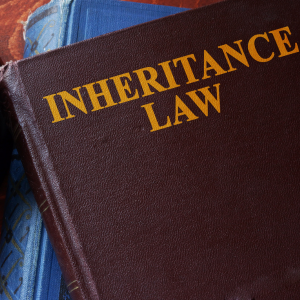
At Blue Wave Investments, we know inheritance laws for real estate in Covina, CA, can be complex. Whether property passes through a will, trust, or intestate succession, we provide clear guidance to help families confidently navigate the process.
Understanding California Inheritance Laws: A Comprehensive Guide
To comprehend inheritance laws for real estate in Covina, California, it is necessary to navigate the intricate legal framework that regulates property succession. The primary guiding principle of real estate inheritance in California is probate law, which governs the transfer of property following an individual’s demise.
Real estate assets of a Covina resident who passes away with a valid will will be distributed in accordance with the provisions specified in the document. However, in the absence of a will, the state’s intestacy provisions are invoked.
Typically, property is transferred to the closest relatives, such as spouses or children, under these statutes. California is a community property state, which means that any real estate acquired during marriage may be deemed jointly owned and subject to distinct rules upon inheritance. It is crucial to take this into account.
Furthermore, individuals who wish to circumvent probate may wish to establish a living trust for their properties in Covina. This legal instrument facilitates the efficient transfer of assets and can assist in circumventing some of the more complex probate processes.
Estate taxes and local regulations that may impact the valuation and transfer of real estate assets within California’s distinctive legal framework should also be considered by executors managing inheritances in Covina. In order to ensure that successors manage inherited property appropriately and adhere to all pertinent state laws, it is crucial to comprehend these aspects.
Community Property and Inheritance Rules in California
Understanding inheritance laws in California, particularly in cities like Covina, requires knowledge of community property rules. Under California law, assets earned during marriage are usually considered community property, which means that both spouses have equal ownership rights.
This idea has a substantial impact on how real estate is handled after the death of one spouse. If a property in Covina was purchased during the marriage, it is typically considered community property and may pass automatically to the surviving spouse.
Determining whether an asset is community or separate property can be challenging, especially if obtained prior to marriage, through inheritance, or gifts intended for one spouse only. In these circumstances, comprehensive paperwork and legal counsel are required to ensure correct classification and distribution under California’s probate statutes.
In the absence of a will, inheritance is distributed according to intestate succession laws, which may affect the rights of children and other relatives to inherit a portion of the estate. Understanding these nuances allows you to manage the complexities of real estate inheritance in Covina under California’s community property regime.
Community property and inheritance rules dictate how spouses share assets and how heirs receive property after death. With specialized services, you can often quickly and efficiently sell your home for cash in Covina and nearby areas.
Intestate Succession: What Happens When There’s No Will?
Understanding intestate succession is essential for real estate professionals in Covina, California, when a person passes away without a will. Under California’s intestate succession laws, real estate assets are distributed in a precise order to establish legitimate heirs.
When someone dies intestate, their property is usually inherited by close family members, according to state statutes. Without a spouse or domestic partner, children are often the primary benefits.
If there are no children, the deceased’s parents may inherit their estate. If neither the parents nor the direct descendants survive, siblings may be entitled to the property.
According to California law, the purpose of intestate succession is to ensure that real estate and other assets are transferred to relatives in a fair way. Executors and administrators manage estates and facilitate ownership transfers through probate court proceedings.
Understanding these legal limitations is crucial for families facing inheritance concerns without a will in Covina and around California.
Key Differences Between Wills and Trusts in California

Understanding the major differences between wills and trusts is critical for effective estate planning in California, especially when dealing with Covina real estate. A will is a legal document that specifies how an individual’s assets, including real estate, should be divided after they die.
A will, however, must go through probate, which is a court-supervised process that can be time-consuming and expensive. A trust provides for asset management and distribution without probate.
Trusts can be revocable or irrevocable. A revocable trust allows the grantor to control their assets during their lifetime and make adjustments as needed. An irrevocable trust cannot be altered once established, but it may provide tax benefits. Wills become public after probate proceedings begin, whereas trusts are normally private documents.
Furthermore, trusts can establish more comprehensive instructions for asset management in the event of incapacity, which can be especially useful for complex estates with many homes or major real estate holdings in Covina. These distinctions underline the significance of carefully examining whether a will or trust is best suited to one’s individual objectives while arranging for the future disposition of real estate assets in California.
Legal Requirements for Establishing a Living Trust in California
In California, forming a revocable living trust is a foundational component of estate planning, particularly for residential and commercial real estate holdings situated in Covina. To establish a valid trust, the individual creating it, known as the grantor, must be a minimum of eighteen years of age and possess the requisite mental capacity to enter into legally binding arrangements.
The creation of the trust is accomplished through a formal, written instrument that articulates the mechanics of property distribution and nominates a trustee who will oversee the trust estate. Equally important is the funding of the trust, which is achieved by effectuating a transfer of real property from the grantor’s estate to the trust entity. This transfer is typically carried out by the execution of a new grant deed, the original of which must be recorded at the Los Angeles County Recorder’s Office to provide constructive notice of the change in ownership.
In addition, the trust document must be structured in compliance with the provisions of the California Probate Code to guarantee that it operates smoothly upon the grantor’s subsequent incapacity or death. Failure to observe such mandates could render the trust or specific provisions ineffective.
For this reason, engaging a California-licensed attorney who specializes in trust and estate law is advisable. An attorney will provide guidance in drafting, executing, and funding the trust, reducing the risk of errors that could jeopardize the disposition of Covina real estate and ensuring that the trust remains fully operative as intended.
Steps to Creating a Valid Will Under California Law
Creating a valid will in California requires various processes, particularly for real estate in Covina. First, the testator, or person making the will, must be at least 18 years old and of sound mind, ensuring that they comprehend the nature of their estate and the consequences of their choices.
The will must be in writing; while handwritten (holographic) wills are legal in California, it is often preferable to have a typed copy for clarity. To minimize uncertainty, the bequest should precisely describe the property and recipients, including any Covina real estate assets.
To avoid potential conflicts of interest, the will must be signed by the testator in front of at least two witnesses who also sign the instrument; these witnesses must not be beneficiaries. Each phase rigorously follows the California probate code standards to guarantee that the distribution of real estate and other assets goes smoothly after death.
Complying with these legal requirements helps to ensure that one’s preferences regarding their Covina property are honored.
Estate Planning Essentials for Covina Residents

Estate planning is something everyone in Covina should think about if they want to make sure their property moves smoothly to the right people when they pass away. Knowing the basics means looking at key documents like wills, trusts, and powers of attorney. Each one plays an important role in managing your estate the right way.
In Covina and all of California, it’s also crucial to understand community property rules. These rules can change how your real estate is divided when you die. Wills can name who gets what, which helps lessen the chance of family arguments. On the other hand, living trusts can skip the probate court altogether, making property transfers faster and easier.
Talking with an estate planning lawyer who knows California rules is another smart move. These professionals can give you advice that fits your specific situation and explain any taxes that might hit your heirs later. By planning, Covina homeowners can make sure their property goes exactly where they want, without leaving their family with expensive legal headaches.
Protecting Your Assets: A Guide to Estate Protection Strategies
Safeguarding your assets in Covina, California, necessitates comprehending the complexities of inheritance laws and employing efficient estate protection measures to facilitate a seamless transfer of real estate holdings. California’s inheritance laws govern the transfer of property following death, making it essential to understand these requirements to protect your possessions.
Formulating a thorough estate plan will alleviate potential legal conflicts among beneficiaries and diminish probate expenses. Employing instruments such as living trusts, wills, and joint tenancy agreements can provide substantial safeguarding for real estate holdings.
Living trusts facilitate the circumvention of the probate process, providing an expedited transfer of ownership while preserving confidentiality. Moreover, explicitly articulated wills eliminate uncertainty over asset allocation.
Joint tenancy with right of survivorship guarantees that property transfers immediately to the surviving co-owner, bypassing probate proceedings. Engaging an experienced estate attorney knowledgeable about Covina’s legal framework can offer customized guidance on enhancing these techniques to safeguard your real estate investments efficiently.
How to Include Digital Assets in Your Estate Plan
When making plans for your estate in Covina, California, it’s important to think about including digital assets as well as actual estate. People sometimes forget about digital assets when they arrange their estates. These can include internet accounts, cryptocurrency, and intellectual property that is housed online.
But they are quite valuable and need to be carefully handled to make sure they can be passed on smoothly after you die. To properly include digital assets in your estate plan, start by making a list of all your digital possessions and securely storing your login information.
It’s important to choose a tech-savvy executor who knows how to handle digital estates according to California law. Also, make sure to spell out what you want to happen with these assets in legal papers like wills or trusts. Keep in mind that federal and state laws regulate who can access and transfer digital information.
By taking care of these things ahead of time, you protect the financial and sentimental value of your digital legacy for future generations.
Choosing the Right Beneficiaries for Your Estate Plan

When devising an estate plan within Covina, California, the careful selection of beneficiaries for real property is essential to ensuring that your intended disposition of assets is honored. An awareness of California inheritance statutes is therefore indispensable for determining the most equitable manner of allocating your real estate among your heirs.
Californian community property rules, along with the attendant probate framework, can materially affect the transfer of real estate holdings. Because naming minors or beneficiaries with special needs may introduce heightened complexities, such as the necessity for creating supplemental trusts, the legal consequences of such designations must be thoroughly analyzed.
Engaging with a qualified estate-planning attorney who is well-acquainted with Covina’s ordinances offers the opportunity to customize an estate plan that addresses statutory mandates and familial exigencies. By judiciously designating beneficiaries whose goals correspond with your express intentions, and by appreciating the ramifications of inheritance taxes, it is possible to institute a cohesive strategy that fulfills both legal standards and the dynamics of your household.
Selecting the proper beneficiaries ensures that your assets follow your wishes. For property owners, at Blue Wave Investments, we buy houses in Los Angeles and other cities and help convert real estate into cash. Regularly reviewing your estate plan keeps it current and aligned with your intentions.
What Is the New Inheritance Law in California?
Recent developments in California succession law, especially regarding real property, have ushered in noteworthy modifications that are of particular relevance for residents of Covina. Alloyed chiefly to Proposition 19, the revised inheritance statutes dictate the circumstances under which real property may be transferred from parents to children without adverse tax consequences.
While offspring retain the right to succeed to parental real estate, the preceding property tax assessment may only be preserved when the inherited residence subsequently becomes the heir’s principal dwelling. The purpose of this measure is to mitigate the broader housing crisis, compelling homes to perform as primary residences rather than speculative or investment vehicles.
Concurrently, any inherited parcel whose assessed value surpasses an as-yet-specified threshold will be reassessed to reflect prevailing market conditions, thereby subjecting the heir to a potentially elevated tax burden. Mastering these intricate stipulations is essential if Covina homeowners are to formulate efficacious estate strategies and to interpret the ramifications of succession duties and the property tax regime under the revised statutory architecture.
For that reason, the advice of an estate-planning attorney with a demonstrated track record in California real estate law is strongly recommended. Such counsel may illuminate the particular ways in which the amendments are poised to affect individual circumstances in Covina, facilitating the development of a resilient and cognizant succession plan.
What Is the Order of Inheritance in California?
California’s intestate succession laws dictate the order of inheritance for real estate and assets. These laws take effect when a person dies without a legal will.
Understanding this structure is critical for anyone dealing with inheritance matters in Covina, California. The decedent’s surviving spouse or registered domestic partner is often the first to inherit, followed by their children.
If there are no surviving children, the decedent’s parents are the next most likely heirs, followed by siblings. If none of these relatives exist, the estate may be passed down to more distant kin such as nieces, nephews, or cousins.
It is critical to understand that community property laws have a substantial impact on inheritance in California, particularly the share of an estate that a surviving spouse is entitled to receive. For Covina residents navigating these complex inheritance regulations, engaging with an experienced estate attorney can give clarity and guarantee that real estate holdings are distributed properly in accordance with state law.
The order of inheritance sets the legal sequence for distributing a deceased person’s estate, ensuring a fair allocation. For guidance, Contact Us at Blue Wave Investments.
What Are the Restrictions on Inheritance?
Understanding inheritance rules for real estate in Covina, California, requires awareness of any special restrictions that may apply. California’s inheritance laws are governed by both state statutes and local rules, which can place specific restrictions on how real estate is distributed after death.
One notable constraint is the probate process, which is necessary unless the property is held in trust or qualifies for a streamlined procedure. Furthermore, property taxes may rise as a result of reassessment, unless the transfer qualifies for an exemption under Proposition 13 or Proposition 58.
Spousal rights and community property rules may allow surviving spouses to claim a portion of the estate, regardless of will provisions. Furthermore, any outstanding debts or liens on the property must be resolved before the real estate may be entirely transferred to the heirs.
Understanding these constraints is critical for anybody involved in Covina real estate inheritance to maintain legal compliance and avoid potential beneficiary conflicts.
Want to sell your home quickly and easily? Blue Wave Investments buys houses as-is, so no repairs are needed. We’ll give you a fair cash offer and handle the process so you don’t have to. Call (866) 613-3041 today for a no-obligation cash offer and start now.
| INHERITS | CHILDHOOD | STATE OF CALIFORNIA | INTESTATE ESTATES | REVOCABLE LIVING TRUST | IRREVOCABLE TRUSTS |
| HALF-SIBLING | BIOLOGICAL PARENTAGE | CONSERVATOR | CONSERVATEE | CONSERVATORSHIP | GRANDCHILDREN |
| GRANDCHILD | LAWYER | FINANCIAL ADVISORS | INVESTMENT ADVISER | FINANCIAL ADVICE | TAX RETURNS |
| MOTHER | BENEFICIARY | STEPCHILDREN | STEPPARENT | LIFE INSURANCE | LIFE INSURANCE POLICIES |
| INVESTING | INSURANCE | HEALTHCARE | DEEDS | AFFIDAVIT | U.S. |
| THE UNITED STATES | POWER OF ATTORNEY | DURABLE POWER OF ATTORNEY | GUARDIANSHIP | JUDGE | INCOME TAX |
| PERSONAL INCOME TAX | FATHER | DIVORCE | AUNTS | NEWSLETTER | INCOME |
| IMMIGRANTS | GRANDPARENTS | FOSTER CHILDREN | FINANCE |
Helpful Covina Blog Articles
- How To Sell A Covina, CA Home With Unpermitted Work
- Selling Your Home By Owner Vs. Using A Realtor In Covina, CA
- Sell Your Covina, CA Home When Behind On Mortgage Payments
- Inheritance Laws For Real Estate In Covina, CA
- Divorce Home Appraisal In Covina, CA
- Explore the Covina, CA Neighborhood Map
- Is Covina, CA a Good Place to Live?
- Best and Worst Neighborhoods in Covina, CA
- Covina, CA Property Tax Rate
- Best Covina, CA Property Managers


